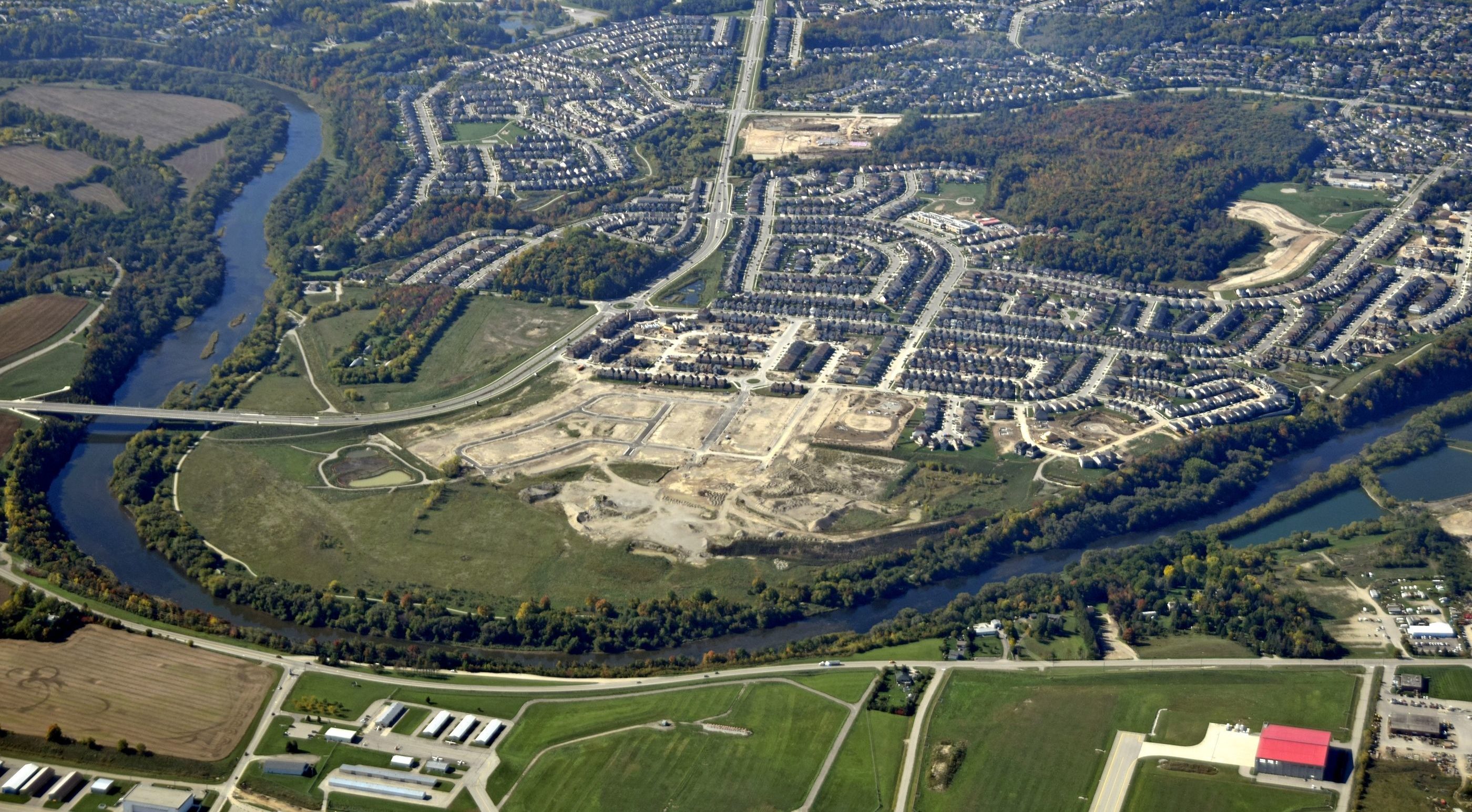The Grand River Conservation Authority (GRCA) will spend more than $35 million this year on programs that protect life and minimize property damage from flooding and erosion, improve the health of the Grand River watershed, connect people to the environment through outdoor experiences, and manage land holdings in a responsible and sustainable way.
The budget was approved by the GRCA board on Friday, February 22, 2019. The board is made up of 26 members appointed by the municipalities in the Grand River watershed.
Municipalities will contribute about $11.6 million in general municipal levy to the GRCA in 2019, about 33 per cent of the GRCA’s total budget. The municipal levy portion is up 2.5 per cent this year, which works out to approximately $10.84 per watershed resident. The municipal levy portion of the budget is allocated to each member municipality using the “Modified Current Value Assessment” as outlined under Regulation 670/00 of the Conservation Authorities Act.
Government grants totalling just under $4.9 million represent about 14 per cent of the budget. This includes funding for major maintenance of water control structures, the source protection program, floodplain mapping projects, and rural water quality landowner grants.
Finally, the GRCA generates more than $15.4 million or 44 per cent of its own revenue through revenue sources such as camping fees, park admissions, nature centre programs, hydro sales, property rentals, tree sales, planning permits, and donations raised by the Grand River Conservation Foundation (GRCF).
Some highlights from the budget are included below.
- Drinking Water Source Protection Plan: GRCA continues to work on the updates and implementation of a Drinking Water Source Protection Plan for each of the four watersheds in the Lake Erie Source Protection Region, including the Grand River watershed. This is being done as part of the provincial Source Protection Program under the Clean Water Act, 2006. Along with supporting municipalities and other agencies in implementing the plans, the focus in 2019 is on completing updates to the Grand River Source Protection Plan. This includes water quantity risk assessment studies, the development of water quantity policies, updating water quality vulnerability assessments, and the development of the first annual progress report for the Grand River Source Protection Plan.
- Water Management Plan: The Water Management Plan was endorsed in 2014 as an update to the 1982 Grand River Basin Study that charts a course of actions to reduce flood damages, ensure water supplies, improve water quality, and build resilience to deal with climate change. The municipal, provincial, and federal government and Six Nations Water Managers meet quarterly to report on the progress of the commitments in the Plan. Two reports are underway and expected to be completed in 2019: a technical report on the state of water resources in the Grand River watershed and a summary report on the status of implementation of the Plan.
- Hazard Tree Management: In April 2018, the GRCA received approval from the Ministry of Natural Resources and Forestry to use up to $1.8 million from the Land Sale Reserve for hazard tree management over a three-year period. This funding has allowed the GRCA to accelerate its program of tree risk management to ensure the health and safety of the public using GRCA lands. This program will continue through 2019 and 2020.
- Water Control Structures:Major water control capital projects planned for 2019. These include the completion of an ice jam study, floodwall repairs and permanent closure of abandoned railway openings along the Brantford dikes, and repair of the floodwall along the Cambridge dike coordinated closely with City of Cambridge river access projects. Gate control system upgrades and concrete repair designs at Conestogo dam, standby generator enhancements, and temporary stoplog design to allow isolation of gates at Shand Dam are also planned for 2019. In addition to these projects, GRCA will be undertaking concrete and embankment repairs at Wellesley Dam, gate refurbishment at New Dundee Dam, and concrete and embankment repairs at St. Jacobs Dam.
- GRCA Conservation Areas: The GRCA manages one of the largest networks of conservation areas in the province. The 11 fee-for-use conservation areas and the Luther Marsh Wildlife Management Area, which are are collectively called Grand River Parks, provide a wide range of recreational opportunities. Admission, camping, and other fees cover operating costs and capital project costs. Major conservation area capital projects planned for 2019 include a new washroom in the day use area at Byng Island, expansion of the Pines seasonal campground at Elora Gorge, a new workshop and trailer storage area at Guelph Lake, playground replacements at Brant Park, installation of automatic entry gates at Pinehurst Lake and Guelph Lake, and the replacement of the existing washroom building at Elora Quarry. Planning will also be undertaken for a new day use area at Elora Gorge, expected to be constructed in 2020.
Full details of the GRCA 2019 Budget are provided in the February 22, 2019 board report.









